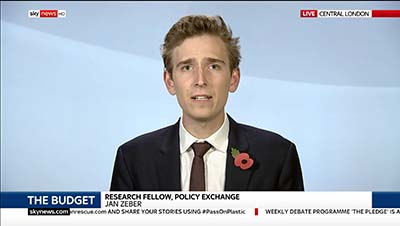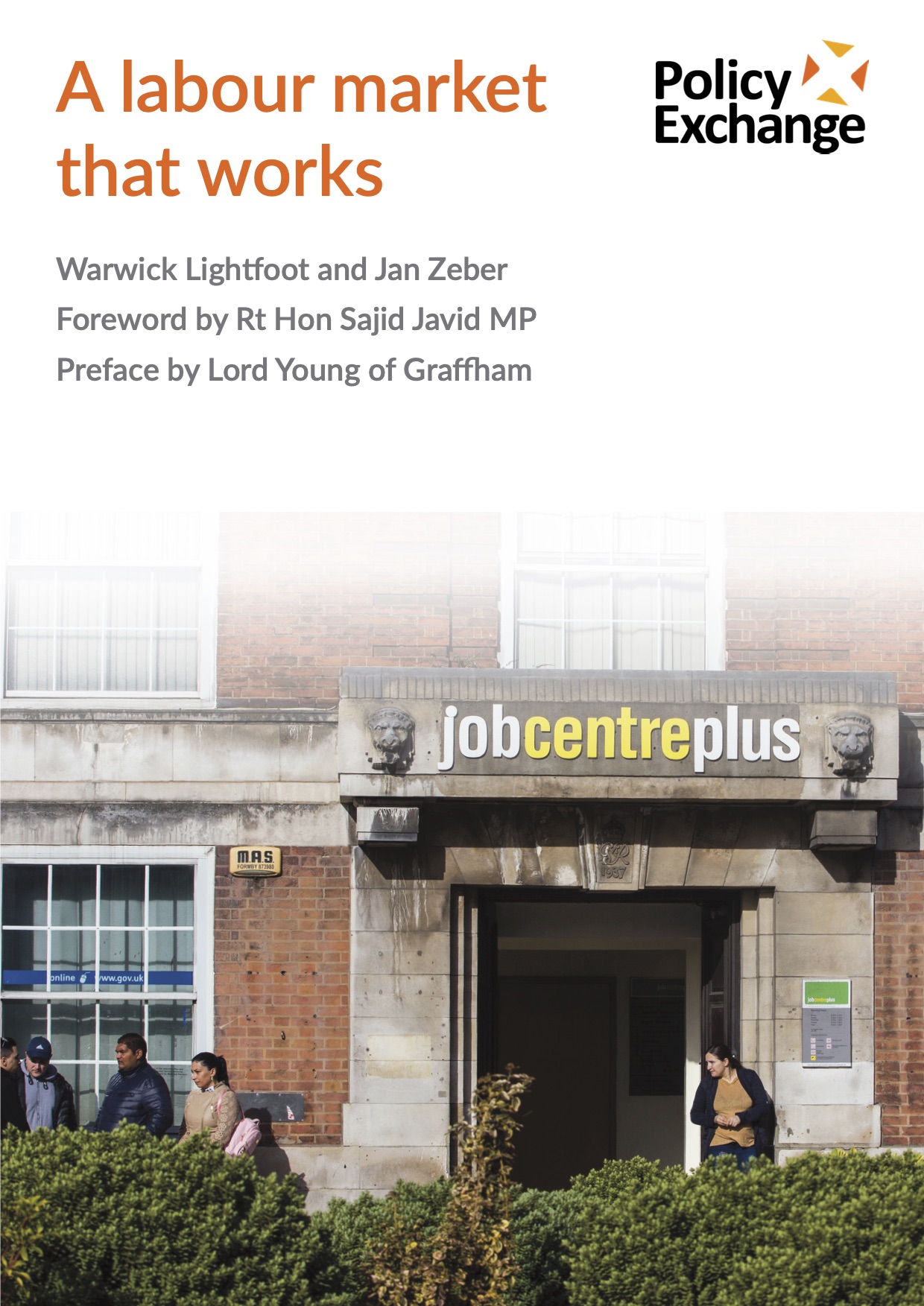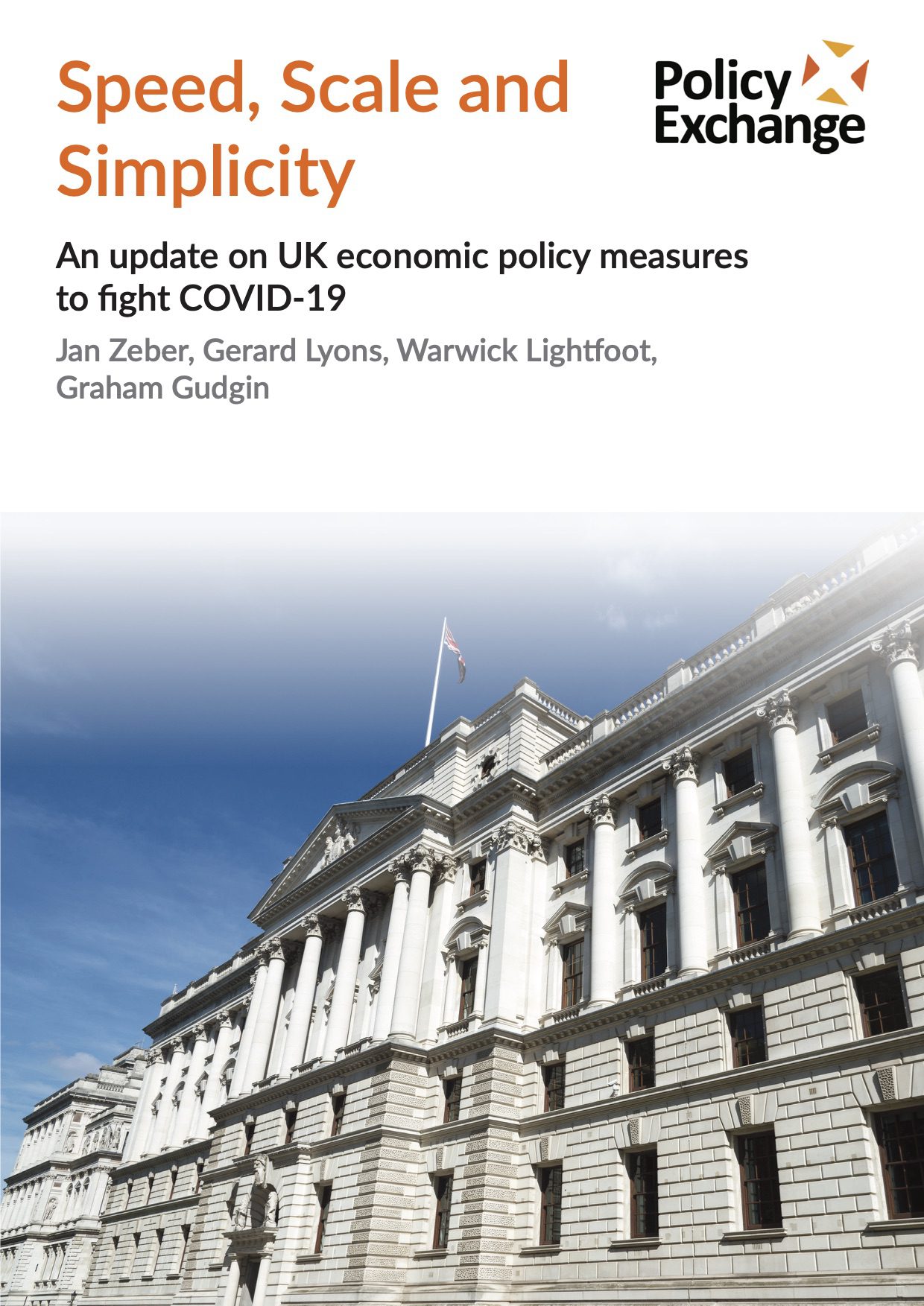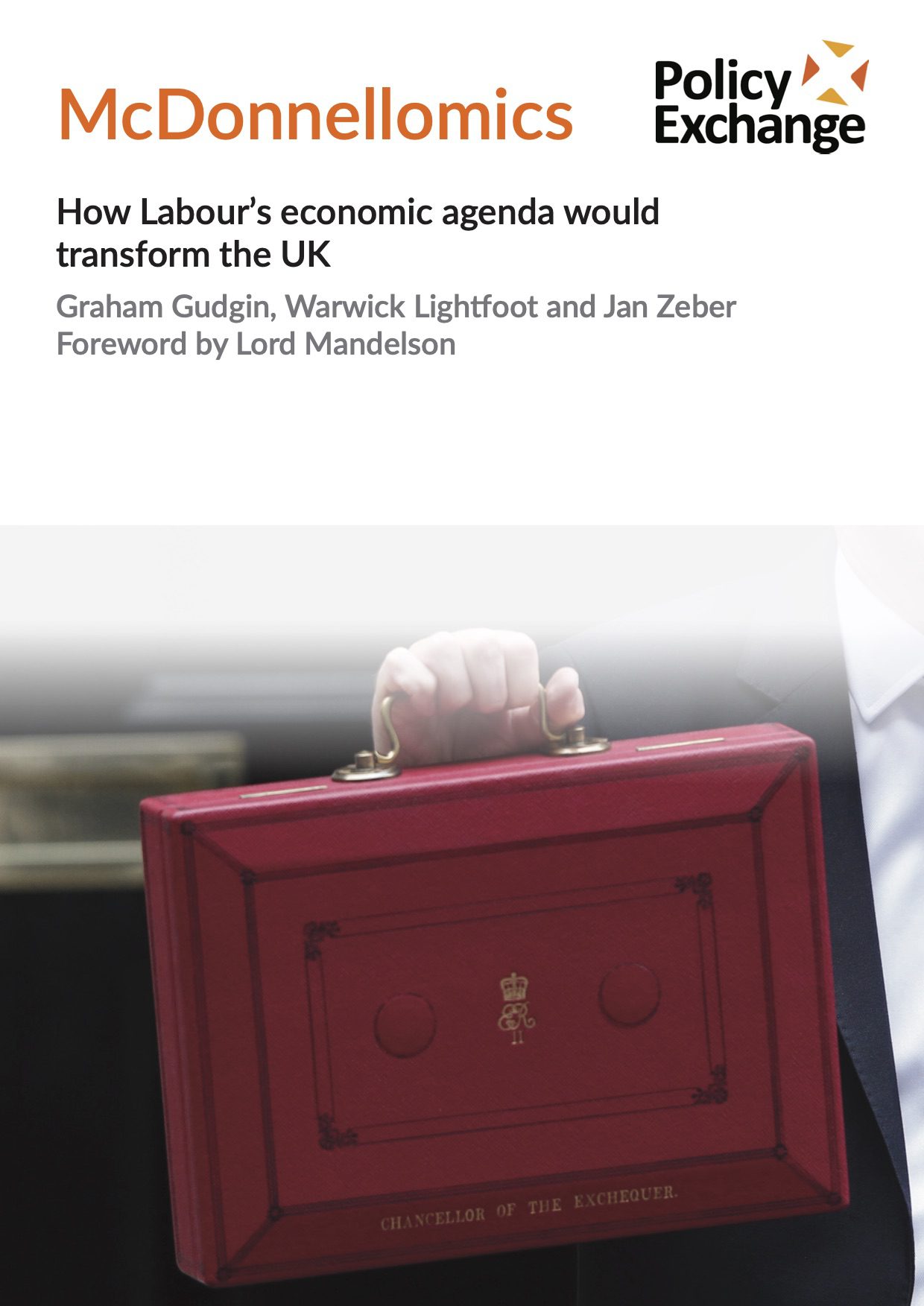Jan Zeber
Deputy Head, Economics and Prosperity (2018-2021)
Jan was Deputy Head for Economics and Prosperity at Policy Exchange, where he primarily works on the Prosperity programme, helping to lead on a range of topics including corporate governance, competition and regulation. Prior to his current role he was a Policy Analyst at the TaxPayers’ Alliance. He has worked for a number of other think-tanks as well as the private sector, producing legal and economic analysis in fields as diverse as the regulation of sharing economy in the UK and administrative justice reform in Kenya.
Responding to the Chancellor’s announcement of a Digital Services Tax, Jan Zeber, Policy Exchange’s Research Fellow on Prosperity, told Sky News that the policy should not be viewed as a measure to help the high street. In the long-run, brick-and-mortar shops need to offer something that online retailers cannot, rather than aim to compete directly.
Download Publication Online Reader This paper calls for a pro-growth economic strategy as the best way to address Britain’s fiscal position. Fiscal principles for the future is co-authored by Gerard Lyons, Graham Gudgin, Warwick Lightfoot and Jan Zeber. Dr Gerard Lyons, Senior Fellow at Policy Exchange, said: “It is right to use fiscal policy as a shock absorber, to avoid premature tightening and to direct spending towards capital investment and […]
Download Publication Online Reader The Government should give anyone without a job who wants to start a new business £100 a week for a year, says a new report from Policy Exchange – published a day after unemployment surged to the highest level in over three years. A labour market that works argues for a new 2020 Enterprise Allowance, based on a successful scheme launched in the 1980s. It is […]
This paper argues that the Government should spend more on capital investment. The case was already strong before the Covid-19 crisis and has been strengthened since, as its financing has become more affordable. The paper highlights the importance of taking advantage of the present macro-economic environment afforded by low borrowing costs to provide stable – and sizeable – funding for new infrastructure through an increase in capital spending by the public sector. Additional capital spending, in excess of the fiscal rules, would be sustainable and affordable
The UK is enduring a health and economic crisis. Despite near-term uncertainties, we believe that a new macro-economic framework can help the UK achieve stronger future growth.
A new macro-economic policy framework is needed, as outlined here, based on the three arrows: of credible fiscal activism; monetary and financial stability based on a new remit for the Bank of England; and a supply-side agenda.
Low borrowing costs create a likely lengthy window of opportunity to emerge from this crisis without being panicked into policy measures such as austerity, but it is possible that inflation and yields could rise, so it is not a risk-free option. Success depends upon a clear and credible policy approach.
The Government has outlined an audacious package of measures aimed protecting as much of the UK’s productive potential as possible. But it is an outlier among comparable European economies in that it is yet to announce measures to help start-ups and pre-revenue firms. Jan Zeber and Dr Gerard Lyons outline the unique challenges faced by those firms and what can be done to support them.
The government has outlined an audacious package of measures aimed at dealing with the economic consequences of COVID-19, but in a fast- moving environment, it should be no surprise that policy has to continue to evolve. There have already been four fiscal packages in recent weeks, beginning with the Budget, then one focused on the corporate sector, the next on employees and last week’s targeting the self-employed. This has been supported by monetary policy. Despite this, further action is needed supported by another fiscal boost and further monetary action. It is not only the scale of the stimulus that needs to increase, but the execution of the policies. Also, the policy reaction on job protection has been impressively large, but the lack of any precedent means we cannot be certain how the measures will work.
On Thursday, the Chancellor unveiled his fourth round of policy measures to boost the economy during the Coronavirus crisis. He announced what he called a coherent, coordinated and comprehensive scheme for the self-employed. This positive approach from the Chancellor, and the speed of the Government’s response, is worthy of congratulations. Yet inevitably, in this fast-moving crisis, there remain some areas to iron out, largely linked to the policies’ likely execution and administration. The biggest challenge is the delay, as the measures unveiled will take a couple of months to implement, and the strain that this may place on those self-employed who do not have access to income during this time.
The Government should use the opportunity of the stability created by the election result to reform the civil service to make it more democratically accountable and better able to deliver on the mandate of the government of the day. Better decision making, streamlined processes and improved accountability will lead to improved policy making and legislation, more effective delivery and improved public services, benefiting every part of the UK.
McDonnellomics: How Labour’s economic agenda would transform the UK is the most thorough examination so far of the Shadow Chancellor’s policy approach and inspiration, rooted in a 1970s Bennite socialist political tradition. Based on a wide-ranging analysis of Labour’s published plans, academic papers and interviews, it finds that McDonnellomics would represent the biggest shift in UK economic policy since the advent of Thatcherism. Even after a short period under a Labour government with John McDonnell as Chancellor, the paper concludes, the British economy would be less resistant to shocks, with a more concentrated and volatile tax base, less flexible labour market and lower investor confidence.
Unleashing the power of the Union – ideas for new leadership
Unleashing the power of the Union – ideas for new leadership
Policy Exchange’s Jan Zeber takes a look at Labour’s new plans for the economy and finds some unanswered questions.
Policy Exchange's Economics Research Fellow, Jan Zeber, looks at the EU Commission's multi-billion euro fine of Google and asks if it really reflects the best way to protect consumers.













